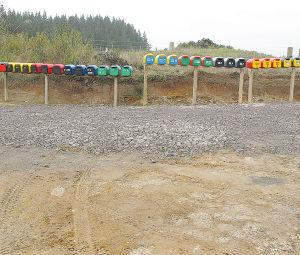Pay Equity Crucial for Rural Communities - RWNZ
Rural Women New Zealand (RWNZ) says it welcomes the release of a new report into pay equity.
 A proposal to reduce postal delivery frequency from five days to three days per week in rural areas has irked farmers.
A proposal to reduce postal delivery frequency from five days to three days per week in rural areas has irked farmers.
Rural Women New Zealand (RWNZ) says proposed changes to rural deliveries mean NZ Post is putting commercial viability ahead of the needs of rural communities.
Earlier in the year, the Ministry for Business, Innovation and Employment (MBIE) started seeking feedback on changes to NZ Post's minimum obligations as a mail service under its Deed of Understanding.
Included in those changes were a reduction in delivery frequency from five days to three days per week in rural areas; a reduction in the minimum number of post offices from 880 to 500 across the country with consideration to shrink that number further to 400; and an allowance for NZ Post to convert existing delivery points into communal points at a rate of up to 5% per year.
When the proposed changes were announced, MBIE general manager, communications infrastructure and trade, James Hartley said the changes were due to a decline in usage over the past 11 years since the Deed of Understanding was last amended.
"New Zealanders are sending less mail than ever before," Hartley says.
"Compared to 20 years ago, we send around 813 million fewer mail items, and this is expected to further decline to around 100 million by 2028.
"We recognize the importance of the mail service, particularly to rural and older New Zealanders, and would like to hear feedback about how people are currently using the mail service and how the proposed changes would work for our communities."
However, in a submission on the proposed changes, Rural Women New Zealand says the changes are "concerning".
"NZ Post is abandoning any quality of service and putting commercial viability ahead of the need for rural communities to access basic postal services," the submission states.
The organisation argues the proposals will severely impact rural communities, the elderly and disabled people, saying they will be forced to wait longer and travel greater distances to clear their mailboxes or send a parcel as a result of the changes.
The organisation argues that the changes need to be scaled back and alternative options need to be considered.
"No consideration has been given to alternative options, such as a different model for postal services."
The organisation also states that geographic criteria for setting the placement of postal services needs to be included in the Deed of Understanding. This, they argues, would allow for the cost of getting to and from a postal service and the physical distance to be factored into the decision-making.
"This would help ensure a minimum level of service for rural communities and avoid NZ Post making decisions that are detrimental to rural communities."
Consultation on the Deed of Understanding closed last week.
New Zealand and Chile have signed a new arrangement designed to boost agricultural cooperation and drive sector success.
New DairyNZ research will help farmers mitigate the impacts of heat stress on herds in high-risk regions of the country.
Budou are being picked now in Bridge Pā, the most intense and exciting time of the year for the Greencollar team – and the harvest of the finest eating grapes is weeks earlier than expected.
The Real Estate Institute of New Zealand (REINZ) has released its latest rural property report, providing a detailed view of New Zealand’s rural real estate market for the 12 months ending December 2025.
Rural retailer Farmlands has released it's latest round of half-year results, labeling it as evidence that its five-year strategy is delivering on financial performance and better value for members.
OPINION: "We are back to where we were a year ago," according to a leading banking analyst in the UK, referring to US president Donald Trump's latest imposition of a global 10% tariff on all exports into the US.